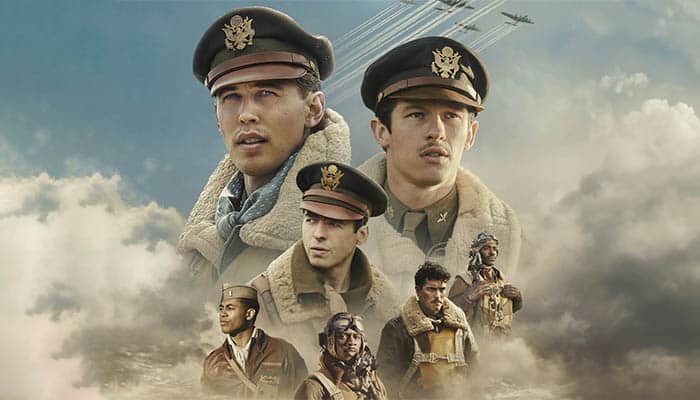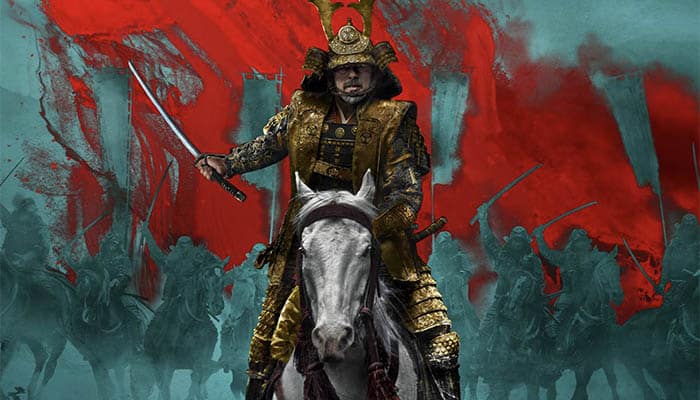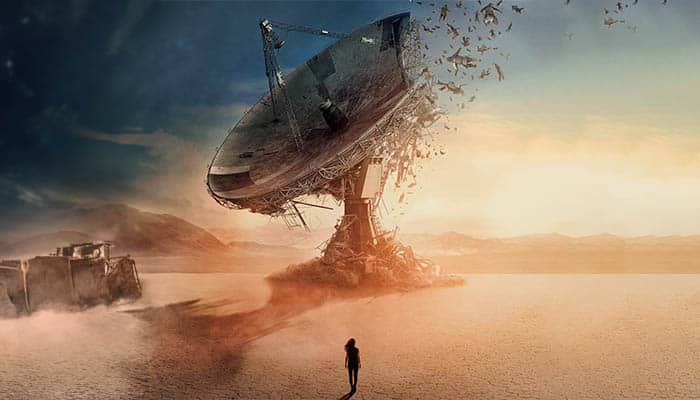In the “West” part(s) of the world, where the streaming and network oligopoly has accelerated itself to the point of dishing out virtually dozens of new shows of exquisite miscellany every month, variety rules. It is easier than ever to get lost amid heaps of pompously auspicious trailers indiscriminately promising the time of your life if you watch this show. Will this latest adaptation of a beloved novel truly hit the jackpot with the screen translation of its source material? What about that 20th new sci-fi outing (and it’s only March!) – which might also be an adaptation of a beloved novel – will it please fans and draw in genre enthusiasts? And how about that prestige limited series about a troubled yet charismatic (likely male) protagonist getting into all sorts of trouble? When you only get an hour a day for yourself, it can be fatiguing to endlessly scroll through the offerings on your television, trying to decide what to lend your eye to before passing out.
The good news is that this eager critic has been keenly glued to the screen throughout the post-festive hibernation, cataloging television “triumphs”, “flops”, and “noble misfires”, so you won’t have to. Here are some of the most intriguing shows to catch up on before we fully slide into Spring 2024.
Masters of the Air (Apple TV+)

“You never said it would be like this,” whispers Major Gale “Buck” Cleven (Austin Butler), leader of the USAAF 100th Bombardment Group, after the Luftwaffe has killed another band of his friends and colleague pilots. It is 1943, and the 100th has been sent to Europe on a streak of nosedive missions to aid the Allies in defeating Hitler. Exceptionally skilled but painfully naïve and mistakenly vigorous in their vision of (air) combat, these righteous kids will suffer the most gruesome of fates while trying to end World War II.
Envisioned as the last piece of the 2001 television mini-series Band of Brothers and The Pacific triptych (2010), Masters of the Air, based on the 2007 book by historian Donald L. Miller, was conceived by Steven Spielberg and Tom Hanks and created by veteran writers John Shiban (The X Files, Breaking Bad) and John Orloff (Band of Brothers). You already know what this means: a budget of nearly $300 million to make it the most expensive TV show ever filmed and the weight of its predecessors’ iconic status to raise expectations to an inhumane level.
Luckily, the cinematic crackerjacks who produced the nine-part series are more than fit for the daunting task. Zooming in on one deadly mission after another before swooping to the ground where most surviving pilots ended up as German prisoners of war, Masters of the Air has no shortage of thrills and lush visuals but also treats its horrendous subject matter with caution. Cary Joji Fukunaga (True Detective), who helmed the first four installments, ensures a smooth dive into the dreams and egos of the young pilots as much as a knee-jerking contrast between their casual frequenting of bars and dances and the continuous horrors of burning flesh and metal in the sky.
“The Bloody Hundredth” was historically memorable for its death rates as much as its gallantry and a tragic, on-point indicator of the cost of war. In that respect, Masters of the Air honors its inspiration’s legacy and marks an appropriate (if not as profound) companion piece to Band of Brothers. Over the show’s simple message yet considerable length of nine hours, some parts drag or appear too repetitive, and some characterizations aren’t given the room they would need to connect with the audience. Still, overall, the effort is worth the investment. Cinematographer Adam Arkapaw (True Detective, The King) certainly made sure that the airborne scenes truly look like the $300 million they cost.
If there is, however, one aspect of Masters of the Air that elevates its status to a must-see, it’s the impeccable cast. Hollywood’s new darlings, Austin Butler and Callum Turner, blaze as Majors Cleven and John “Bucky” Egan. Both larger-than-life emerging stars, they imbue their every scene with the cockiness and charm of youth. Certainly, any such enthusiasm will be offset by the constant threats to their squadron, but the characters’ infectious optimism and love of life provide a strong antidote to the atrocities and the inhumanity they will face in Germany.
As one raid after another ends with the majority of airmen murdered, maimed, or POWs, the outlook grows increasingly bleak. Juvenile, as it may sound, in such circumstances, only honest belief in life being meaningful or blind hope can keep one afloat; Butler and Turner embody these instinct-driven dispositions superbly.
The supporting cast is no less impressive. Barry Keoghan and Ncuti Gatwa, another two of Hollywood’s latest paramours, sizzle through the screen in their minor but emotionally mighty roles as Lieutenant Curtis Biddick and 2nd Lieutenant Robert Daniels. Anthony Boyle also gets the best writing of the series as Lt. Harry Crosby, the unit’s lead navigator and one of the few men who escapes the dread of warfare by being dispatched to England for more bureaucratic purposes.
With the finalé having just aired on 15 March, Masters of the Air is an exciting and weighty binge-watch opportunity for fans of big-budget action rooted in history, and especially Dune acolytes craving another fix of their newest obsession, i.e., Butler. Strap yourself in for the barrel roll of the season. For those particularly keen on the historical aspects of the story, an adjunct hour-long documentary titled The Bloody Hundredth (narrated by Hanks) has been released on 15 March on Apple TV+.
Shōgun (FX)

For the admirers of immoderate, gigabucks, guns blazing (quasi) historical and epic spectacles, this Spring is really, to use illustrative social media epithets, serving. FX’s limited series Shōgun, already a fan-favorite several episodes in, is a gorgeous-looking masterpiece of political intrigue and an accomplished criticism of violence set in 17th-century Japan. Just like Masters of the Air, it had been years in the making since it was first announced in 2018, but the end result is well worth the unwieldy production timeline. The king’s ransom has been well spent here.
More than just a “ successor to Game of Thrones”, Shōgun is an intelligent reimagining of James Clavell’s sweeping 1975 epic novel, doing the Japanese justice in the way Jerry London’s cult 1980 miniseries didn’t. Created by Justin Marks (Counterpart) and Rachel Kondo, a writer of Japanese origin who served as supervising producer, the new version of the historical drama honors the Japanese culture while acutely recognizing the issues with any form of imperialist one-upmanship. A tale of feudal lordly intrigue in early modern-era Japan, seasoned with early colonialists’ skullduggery and plots to secure favorable diplomatic positions, Shōgun goes big on gore while never looking away from the lessons to be learned from reveling in power.
It is 1600, and the starving crew of the Dutch ship Erasmus arrive at the inhospitable Japanese shore half-dead, only to be taken prisoner by the samurai warriors. Among them is Pilot-Major John Blackthorne (a firecracker Cosmo Jarvis), a perceived enemy to bloodthirsty local lords and the catholic Portuguese traders. In the first episode alone, several attempts on his life will be made, with a neverending sense of dread that creeps in to stay.
So the very loosely historical outside-looking-in legend begins. The Japan we encounter (just three years before the iconic Edo period) is torn between no less than five regents on a ruling council, standing in for an underage heir. Of the greedy, conniving five, the one to root for is Yoshii Toranaga (a wonderful Hiroyuki Sanada who also produced the show), a cunning, seemingly righteous man who finds himself in hot water after the “other four” conspire to execute him and consolidate power. While the denigrated “barbarian” Anjin (Japanese for “pilot”) Blackthorne scrambles to survive, Toranaga endeavors to make use of his ship’s guns and gold. Ensuring the two are not lost in translation is Toda Mariko (a commanding Anna Sawai of Pachinko fame), a translator with a tragic past and her own axe to grind.
As the Council of Regents skirmishes foreshadow an all-out war, the web of intrigue – and its participants – and the stakes will only keep growing. The trio of protagonists will do almost anything to survive, but with so many formidable foes hellbent on seeing their demise, no place on or off the coast of Japan will prove safe. Jarvis, Sanada, and Mariko are a treat to watch, playing off their characters’ differences to drive pace and earn emotional investment. Jarvis’ erratic, logorrheic, and often juvenile Blackthorne turns out to be a perfect complement to the stoic, tacit Toranaga and high-brow Mariko, eliciting more than a few laughs on their perilous way, too.
The supporting ensemble, boasting more than 30 (!) names, also builds most of the muscle around Shōgun’s backbone. Takehiro Hira is pure, composed ambition as Ishido Kazunari, a mighty bushō with a commoner’s background and Toranaga’s greatest Regent nemesis. Nestor Carbonell is endlessly charming as Vasco Rodriguez, a mischievous Spanish sailor wage slaving for the Portuguese, who doesn’t believe in friendship but nevertheless grows fond of Blackthorne. A possible standout is the excellent Tadanobu Asano as Kashigi Yabushige, a minor in rank but majorly resourceful lord of Izu who follows Toranaga on his life-changing journey. Shōgun‘s rich tapestry of players, even those with little screentime, is fleshed out successfully through sharp writing, which reveals plenty about the characters and their culture, even through the smallest of details.
Where this latest rendition of Shōgun succeeds the most, however, is in its astute political and social commentary, condemning the civilization’s grotesque history of violence without disparaging or unduly exoticizing Japanese culture. London’s 1980 hit starring Richard Chamberlain didn’t even subtitle what little Japanese dialogue there was; in this version, more than 75% of all dialogue is in Japanese (with subtitles, obviously), with Toranaga and Mariko as protagonists equal to Blackthorne, often overshadowing his plight with the complexity of their circumstance. FX even created a comprehensive viewer’s guide to help the audience understand Japanese history, religion, and politics.
Shōgun’s insights into the dangers of patriarchy and hierarchical violence are far from banal, too. In the opening episode, a father murders his infant son in front of the child’s mother in reparations for “insulting” a higher-ranking official. Soldiers habitually resort to seppuku – ritualistic suicide by disembowelment – both to avoid punishment or punish themselves for doing something “shameful”. By episode four, you will have lost count of the heads and limbs flying around.
At one point, a man is slowly boiled to death while his killers grin. This, and much more, is handed to us in excruciating detail but straight, without a hint of romanticizing or exhilaration many epic tales find in barbarity. This way, the senselessness and absence of fairness a culture (any culture) was brought up on are exposed for the civilizational failures they are.
Not often does one call a ten-episode limited series “economical”, but bearing in mind that Clavell’s leviathan novel sprawls over 1,000 plus pages, it is a small miracle that Shōgun’s story succeeded in getting its myriad points across in just under ten hours of airtime. It turns out that taut pacing that doesn’t ring frivolous or overbearing and intense yet measured (amounts of) dialogue can indeed exist in an excellent television show with the help of the right creative team. Shōgun is exhilarating and profound, a treat among the incessant exorbitant filler or unchecked auteur whim posing as prestige TV. If you only have hours to spare on a weekly basis, invest them in Shōgun. The return will be generous.
3 Body Problem (Netflix)

With great expectations come great disappointments and even greater fury, at least in the TV domain. The broadly panned last episodes (seasons even) of the world’s decade-long obsession, Game of Thrones, landed its creators, David Benioff and D.B. Weiss, in dire straits with the global fandom. This is one of the two obvious reasons why geeky edgelords lite prophesied that their adaption of the famed science fiction story, The Three-Body Problem, would be a fiasco. The other is that Liu Cixin’s Hugo Award-winning fiction, which inspired a series of novels by the name Remembrance of Earth’s Past, is a backbreaker to film.
Mythically considered “unadaptable” since its release in 2008, the contemporary classic that popularized Chinese sci-fi literature worldwide is an elaborate, commanding tale of Earth’s brightest scientists discovering that an alien civilization is looking to colonize our planet and getting tangled up in all sorts of outrageous efforts to prevent this. The series, which sources much of its fiction from science, features numbers imprinted onto retinas, realistic virtual reality games defying the laws of physics, the universe “winking” at humanity on Earth, a literal brain in a vat… and the Chinese Cultural Revolution. Without piling on Benioff and Weiss, one could understand the skepticism.
That said, Netflix’s 3 Body Problem turned out quite all right. It feels weird and mysterious, looks (mostly) great, and will likely be a treat for most sci-fi aficionados.
Following approximately the first one-and-a-half books (about half of the trilogy), the show, written mostly by Benioff, Weiss, and Alexander Woo (True Blood, The Terror: Infamy), takes extensive liberties with the ethnosocial and emotional setup while staying true to the general plot. Unlike the books, where the vast majority of characters are Chinese, the series ensemble is a colorful mix of migratory geniuses. Jess Hong (Jin), Jovan Adepo (Saul), Eiza González (Auggie), Alex Sharp (Will), and John Bradley (Jack) star as “The Oxford Five”, a quintet of acclaimed physicists who are about to be pulled into a multilayered, decade-spanning conspiracy of, pardon the pun, cosmic proportions.
Both the novels and the show are compellingly nonlinear, but 3 Body Problem‘s basic plot should be easy enough to grasp. After a brilliant young scientist Ye Wenjie (a superb Zine Tseng) is dragged into a labor camp in Mongolia in the late ’60s, she discovers it to be a front for extraterrestrial research and successfully contacts a mysterious alien civilization. Enter Mike Evans (Ben Schnetzer), a radical environmentalist who happens to be one of the world’s biggest trust fund babies. In 1985, he introduced Wenjie to Judgement Day, his juggernaut ship used to communicate with the San-Ti (the said aliens from the planet Trisolaris).
In the present day, various seemingly unrelated researchers commit suicide. Clarence “Da” Shi (a marvelous Benedict Wong), an agent for the Strategic Intelligence Agency, is trying to link the deaths, finding a mysterious VR headset in each of the deceased’s possessions. Meanwhile, Thomas Wade (a reliably authoritative Liam Cunningham) attempts to gain the upper hand against the threat from above by enlisting global superstars from relevant branches in various over-the-top-secret projects.
There is a lot to digest here, which is what made Cixin’s novels so compelling in the first place, but don’t fret – Benioff and Weiss have pulled off the deceptively simple job of streamlining the many threads in an accessible manner. Their narrative funneling is squeaky clean, with the many facets of the interstellar struggle distilled to satisfy a wide array of viewing profiles.
Some fans of the book series might be worried reading this. Understandably so. After all, Cixin’s serious fiction is most famous for its highbrow treatment of scientific concepts and jargon (the “three-body problem” is the problem of predicting the individual motions of a group of celestial objects interacting with each other gravitationally; no general solution exists (thank you, Wikipedia)). Myriad borderline unimaginable scientific wonders pop out from nearly every page of the trilogy, including sophons, supercomputers created from 11-dimensional (!) protons, dimensionally unfolded to unpretentious two dimensions, and sent by the San-Ti to Earth at the speed of light (sophons can move that fast in three-dimensional space, duh) to do recon and disrupt humanity’s particle accelerators. It seems like no matter who goes to war, in sci-fi, it’s always poor CERN that takes the first hit.
If the ideas above or words such as “orbital mechanics” sound arousing to you, it must be noted you won’t find them much here, or at least not to the degree you found them Cixin’s books. For better or worse, 3 Body Problem works best as a mystery-thriller or even a procedural, going to great lengths to boil down the bizarre source material into a manageable, mainstream-friendly story. The show does not lose sight of what it “really” is, keeping science fiction at its core enough to stir up an otherworldly feeling, but it does not luxuriate in awe-inspiring world-building the way most lavish genre productions do. 3 Body Problem remains grounded in human drama.
As with large ensembles and limited-size screens, some folks get juicer material to work with, and some are gently chucked to enact plot devices. Benedict Wong (Da Shi), Jovan Adepo (Saul), and Jonathan Pryce (present-day Mike Evans) get many of the laughs, big reveals, or simply directors’ sympathy in slow, extended close-ups where they can show off their acting chops. Surprisingly, Wong’s Shi emerges as a sort of a hero, tying the characters and stories together with grace and humor, setting the stage for the big maneuvers and showdowns that expect us in future seasons.
Don’t be afraid, though, as the first season of 3 Body Problem already covers about half of the entire source material. A season or perhaps two more would be in order, but this will not be the next Game of Thrones. I mean this in a good way.

